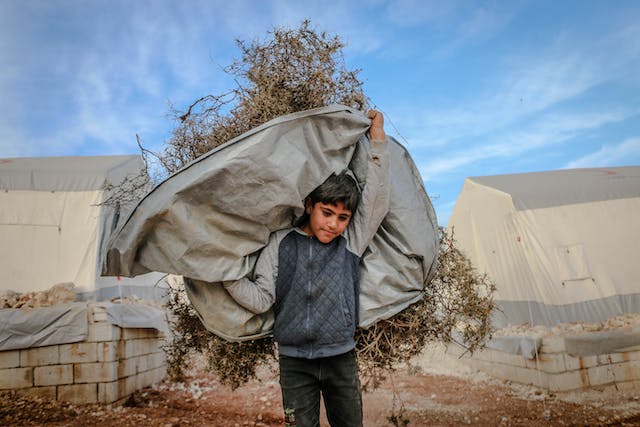On a seemingly ordinary day, a young boy of around ten years found himself repeatedly ringing the doorbell of a house. It appeared that the newspapers, usually delivered daily, might not be published that day. The mistress of the house, curious about the persistent ringing, opened the door and asked the child about his purpose.
In a pitiful voice, the child asked, “Aunty, can I clean your garden?”
The mistress, a bit reluctant, replied, “No, don’t bother us.”
But the child, with a sense of determination, pleaded, “Please, aunty, I’ll clean it really well.”
After a moment of consideration, the mistress agreed, “Alright, how much money do you want?”
To the mistress’s surprise, the child responded, “Don’t want money, aunty, just give me food.”
Sensing the possibility that the boy might be hungry, the mistress decided to prioritize providing him with a meal. However, the boy insisted on working before eating.
After an hour of diligent work, the boy proudly presented the cleaned garden to the mistress. Impressed by his efforts, she remarked, “You’ve done a great job. Sit down; I’ll bring you some food.”
As the mistress served food, the boy took out a plastic bag, intending to pack the meal for later.
Curious, the mistress asked, “Hungry? Eat here; I’ll give you more if needed.”
The boy explained, “No, aunty, my mother is sick. She’s at home, and the doctor said she should not take medicine on an empty stomach.”
Touched by the boy’s sense of responsibility and compassion for his mother, the mistress fed him like a second mother. Later, feeling a connection to the boy’s family, she even went to their house, prepared bread for the sick mother, and reflected on the richness that comes from giving to those less fortunate.
The story teaches us valuable lessons about compassion, empathy, and the power of small acts of kindness. It encourages us to:
- Show Compassion: No matter how busy or occupied we are, there is always room for compassion. The mistress, despite her initial hesitation, chose kindness over indifference.
- Recognize Needs: Often, people might not ask for help directly. It’s essential to be observant and recognize the needs of those around us, especially when they are not explicitly stated.
- Prioritize Humanity: The child’s choice to prioritize work over immediate food shows a sense of responsibility and a commitment to fulfilling obligations, even in difficult circumstances.
- Empathize with Others: The mistress, acting as a second mother, exemplifies empathy. Understanding the boy’s situation and connecting with his struggles demonstrates the importance of putting oneself in others’ shoes.
- Acts of Kindness Multiply: The ripple effect of kindness is evident as the mistress not only provides food but goes the extra mile by making bread for the child’s sick mother. Small acts of kindness can lead to more significant positive impacts.
- Gratitude: The story prompts reflection on the abundance we often take for granted. It encourages gratitude for the resources we have and inspires us to share with those who may be less fortunate.



